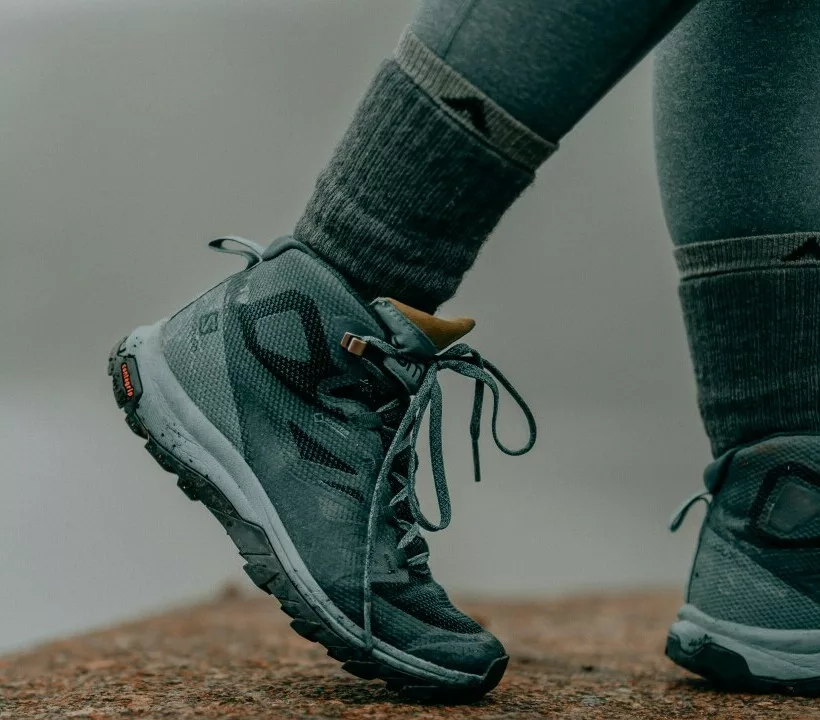Don’t Let Age Stop You from Enjoying the Outdoors

Hiking creates lifelong memories. For instance, a memorable wetlands revealed an astonishing landscape after rain and fog cleared. After years of contemplation, finally deciding to tackle a multiday hike can bring uncertainty for those who are older or haven’t hiked in a long time. However, age is not a barrier. Older individuals can successfully complete multiday hikes, and this article aims to inspire those 55+ to embark on this rewarding journey.
Wisdom and Insight of Older Hikers
Extra decades provide wisdom and mental toughness. Older hikers understand their bodies and have strong motivations to stay healthy.
Physical Benefits of Hiking
Regular hiking improves weight, blood pressure, cholesterol, cardiovascular fitness, and physical strength.
Challenges of Aging
Older bodies may have worn joints, less stretchy ligaments, and reduced muscle-building capability. Balance, temperature regulation, and self-confidence may also be affected.
Practical Tips and Workarounds
Check in with Your Health Professional

Consult a GP or specialist before starting a new exercise regime or multiday hike. Hiking can boost health, but specific approaches may be recommended.
Understand Your Motivation
Determine why you want to hike (physical challenge, mental health, family time). Choose hikes that align with your motivation.
Acknowledge Strengths and Weaknesses and Choose the Right Hike
Be realistic about your physical capabilities. Choose hikes that match your fitness level and modify them to suit your needs and comfort.
Train
If sedentary, start with short, regular walks and gradually increase intensity. Consider a gym membership for targeted training. Even gentle hikes improve fitness.
Hike Your Own Hike (HYOH)
Focus on your motivation and enjoy the experience at your own pace. Don’t compete with younger hikers or your younger self.
Reduce Your Pack Weight
Use lighter, modern gear to reduce strain on your body. Invest in lightweight tents, sleeping bags, and kitchen gear. Consider comfort items like pillows or ultralight chairs.
Choose Appropriate Footwear

Opt for shoes with cushioning, arch support, and proper fit. Consult a podiatrist for chronic foot issues. Ensure footwear is familiar before hiking.
Use Trekking Poles Correctly
Trekking poles reduce strain on knees and improve balance. Use poles with wrist straps for proper support.
Embrace New Technologies
Utilize GPS, communication tools, and mapping apps. Stay in touch with family and friends for safety.
Manage Heat and Cold
For heat: hike in cooler seasons, wear appropriate clothing, stay hydrated, and know heatstroke symptoms.
For cold: dress in layers, use warm sleeping gear, and choose suitable campsites.
Protect Skin and Eyes
Wear long sleeves, hats, sunscreen, and sunglasses. Treat minor injuries promptly.
Choosing the Right Nutrition

Nutrition plays a crucial role in ensuring energy levels remain high during multiday hikes. Older hikers should focus on balanced meals that provide sustained energy, such as whole grains, lean proteins, fruits, and vegetables. Pack lightweight snacks like nuts, dried fruits, and energy bars for quick boosts on the trail. Adequate hydration is equally vital; carry plenty of water and consider electrolyte supplements to maintain hydration levels, especially in warmer climates or during strenuous hikes.
Embracing the Social Aspect
Multiday hiking offers not only physical challenges but also enriching social experiences. Joining hiking clubs or groups tailored to seniors can enhance enjoyment and safety on the trail. Sharing the journey with like-minded individuals fosters camaraderie and provides opportunities to learn from others’ experiences. Additionally, planning hikes with friends or family members can strengthen bonds and create lasting memories together in nature’s embrace.
Mindfulness and Mental Well-being
Beyond the physical benefits, multiday hiking promotes mental well-being by reducing stress and boosting mood. Seniors can benefit greatly from the meditative aspects of hiking, where the rhythm of walking and immersion in nature can clear the mind and enhance mental clarity. Practice mindfulness techniques such as deep breathing or observing the surroundings mindfully to fully appreciate the beauty and tranquility of natural landscapes. Taking time to reflect on achievements during breaks can further uplift spirits and reinforce a sense of accomplishment.
By following these practical tips and workarounds, older hikers can successfully and safely enjoy multiday hiking adventures, creating enduring memories and reaping the physical and mental benefits of the great outdoors.